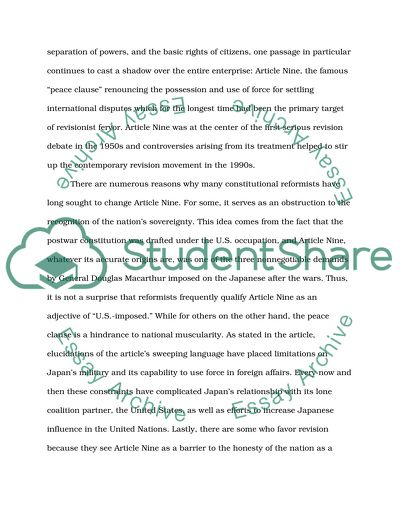Cite this document
(“Politics of Japans Constitutional Reform Essay Example | Topics and Well Written Essays - 2000 words”, n.d.)
Retrieved from https://studentshare.org/politics/1499434-politics-of-japans-constitutional-reform
Retrieved from https://studentshare.org/politics/1499434-politics-of-japans-constitutional-reform
(Politics of Japans Constitutional Reform Essay Example | Topics and Well Written Essays - 2000 Words)
https://studentshare.org/politics/1499434-politics-of-japans-constitutional-reform.
https://studentshare.org/politics/1499434-politics-of-japans-constitutional-reform.
“Politics of Japans Constitutional Reform Essay Example | Topics and Well Written Essays - 2000 Words”, n.d. https://studentshare.org/politics/1499434-politics-of-japans-constitutional-reform.


